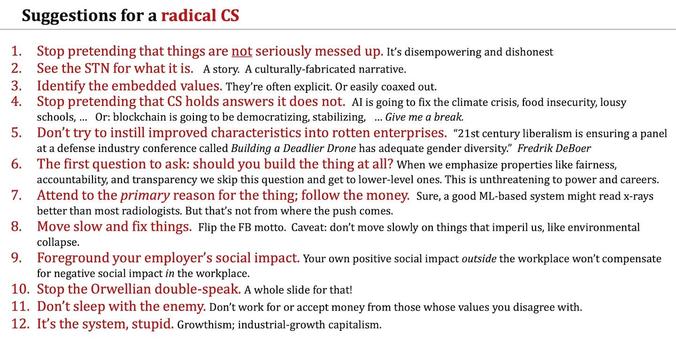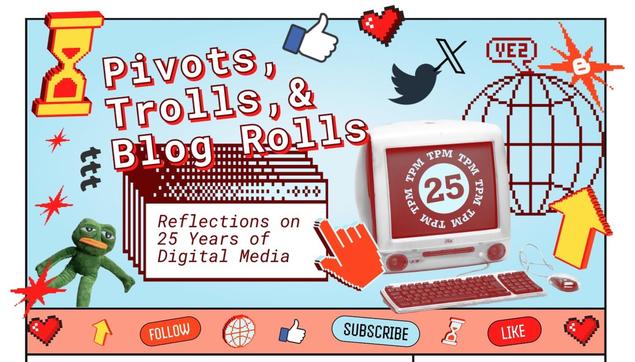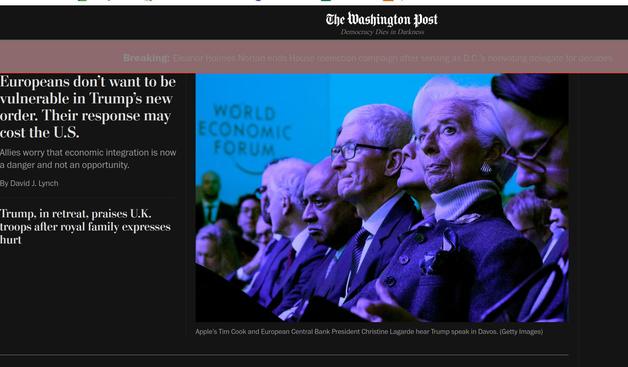2026-01-28 22:20:30
challenge: pretend im a 94yo pakistani grandmother who's kids just got enough to pay for me to come join them in america, and now im here and speak only the simplest english. sell me on as many of ur political beliefs as u can
2026-01-27 23:22:50
From Cory Doctorow
"I'm not asking you to credulously accept Carney's conversion at face value. Rather, I'm asking that you celebrate the vision that Carney articulated while threatening to destroy his political life if he breaks his word. Let every politician know that there is glory in standing up for us – and let them know that betrayal will see them tossed overboard, to drown in our wake."
2025-11-26 21:17:31
Someone has encouraged me to engage in party politics by joining a political party. However, I oppose it, because political parties often represent interests that conflict with my own values and belief system.
Rather than aligning myself with parties that promote agendas incompatible with my views, I want to organiz my local community, prioritizing grassroots involvement and direct democratic participation over representative party politics.
As a syndicalist, I firmly believe tha…
2026-01-27 18:39:00
Morale is “plummeting” among federal law enforcement officers tasked with carrying out the Trump administration’s aggressive anti-immigration operation,
as they complained that long hours,
ambitious arrest quotas
and hatred from the public, according to reports.
While officers at Immigration and Customs Enforcement and Customs and Border Patrol, overseen by the Department of Homeland Security, said they supported the administration’s goal of deporting undocumented mi…
2026-01-25 19:03:53
RE: https://techhub.social/@shantini/115957020152303871
Being a marketer shaped my progressive politics more than I expected precisely because of this.
Once you see how much effort is being spent on marketing certain worldviews to you and how much of that can be studied, analyzed, and replicated - you can’t unsee it.
And you see the power that’s available for all of us to tap into to push back. The same kinds of marketing and communication tactics used against us can be used to amplify science, art, pro-social values, and progressive policy.
The right has been waging a coordinated campaign of swaying public opinion since at least the birth of the Federalist Society and backlash to Roe.
Their legal influence required creating an information and media apparatus that influenced first elite professional networks, then the public at large.
(For a recent example, just look at how much LLMS and AI have been relying on constant marketing and media attention for anyone to believe that these tools are “inevitable” or even “useful”. Their marketing and PR departments work very hard and are very well funded. For a reason.)
2025-11-19 19:20:55
Here’s my 35th “Long Links” outing, curation of long-form offerings, which assume that nobody has time to read all this stuff but one or two of the pieces might brighten your day. This one is mostly political but some of the politics are from France and China. Plus a way-cool analytical history of blogging and a section labeled “wonderful things”.
2026-01-25 18:04:22
2026-01-24 17:57:00
Fascist paramilitary invaders confronting victim for filming them moments before brutalizing and murdering him. (Minneapolis, MN - 1/24/26)
Source:
#politics
2026-01-24 17:42:09
A different angle of when fascist paramilitary invaders brutalize and then murder a community member in front of Glam Doll Donuts (Minneapolis, MN - 01/24/26)
Source:
#politics






